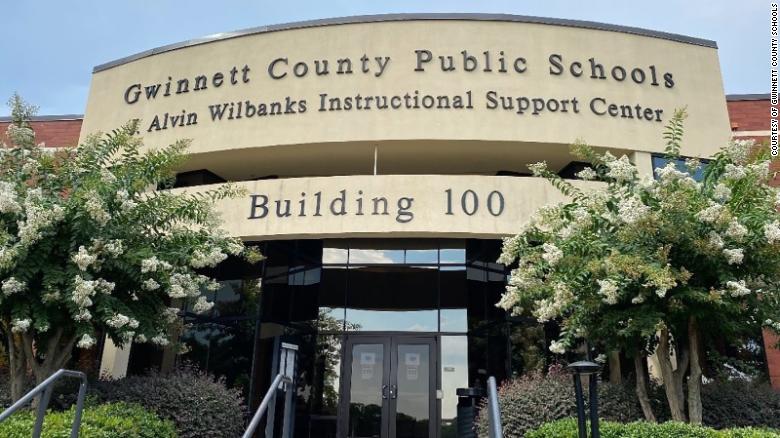Opening schools could be the hardest battle in the war on Covid

The price the world has already paid for the Covid-19 pandemic is eyewatering: massive loss of life, long-term health concerns for survivors, job losses and a widespread economic meltdown sparked by large-scale lockdowns.
Yet it is increasingly clear that the suffering this virus will inflict has barely begun. And the group that looks likely to have to deal with the consequences of this tragedy for the longest are the youngest in our society.
On Tuesday, UN Secretary-General Antonio Guterres warned that the world faces a "generational catastrophe" because school closures are depriving children of their education.
"Getting students back into schools and learning institutions as safely as possible must be a top priority," Guterres said, warning that decisions taken now "will have lasting impact on hundreds of millions of young people" for decades to come.
One country trying to address this issue sooner rather than later is Germany.
On Monday, schools in the north-east German state of Mecklenburg-Vorpommern opened their doors to pupils for the first time since March; all are required to adhere to social distancing and hygiene guidelines, and rules to make mask-wearing compulsory look likely to follow soon.
Students across Germany are expected to follow in their footsteps in the coming weeks -- all of Germany's states have indicated that they want in-person lessons to resume, but the guidance on face masks and social distancing for pupils and teachers varies from state to state.
Ulrike Demme, spokeswoman for German Chancellor Angela Merkel, said the safe reopening of schools was a "demanding task," but said she believed state authorities would be up to the challenge.
So how has Germany been able to get its children back into the classroom?
The answer may lie in its coronavirus testing regime. From the very start of the pandemic, Germany has been praised for its efficient and expansive testing and contact tracing programme. Such rigour has allowed German states and districts to respond quickly to local outbreaks with effective mini-lockdowns.
Compare this to the situation in England, where the government has said it is committed to pupils returning to their classrooms in September, but has not yet explained how it intends to do this in a Covid-19-safe manner.
Christina Pagel, professor of operational research at University College London said the government should prioritise schools over pubs, restaurants, nightclubs and gyms, with the "closure of other settings ... considered to control any rising case numbers before any closure of schools is considered."
Pagel said that in order for schools to reopen and stay open, "a strong contact tracing system that can break chains of transmission and drive infections down" is vital.
According to a study published in the Lancet, if schools in the UK are to reopen in a way that doesn't lead to a second wave of coronavirus, "75% of individuals with symptomatic infection would need to be tested and positive cases isolated," with 68% of their contacts traced so that they, too, can get tested and self-isolate if necessary.
The report concludes that this target is not currently being met. It says any plan to reopen schools "must be accompanied by large-scale, population-wide testing of symptomatic individuals and effective tracing of their contacts."
That means England has four weeks in which to dramatically increase its test-and-trace capability, which has been under fire for months after the government was forced to ditch its own, much-hyped track-and-trace app, and outsource the development to Apple and Google instead.
With a second surge of the virus looking likely, skeptics could be forgiven for wondering if that commitment to open schools in September might be abandoned -- just as the app was. -- in the face of an increase in infections and a still-lagging testing system.
The situation isn't much better in the global capital of coronavirus: The United States.
Schools have reopened in some states, but with varying results.
There have been numerous reported cases of students and staff testing positive for the virus, forcing the infected and those they came into contact with into quarantine for 14 days.
One school in Indiana was reportedly forced to close its doors just days after reopening them.
And while the US does have large-scale testing capacity, it's not clear how useful that is given the vast numbers of coronavirus cases in the country.
Last month, Dr. Peter Hotez, dean of tropical medicine at Baylor College of Medicine, told CNN infection rates in the country's South and South West were so high that contact tracing was no longer possible.
"The cases are rising so rapidly, that we cannot even do contact tracing anymore," he warned. "I don't see how it's possible to even do that."
Given the scale of the US' Covid-19 crisis, it's hard to see how schools can return to anything like normal without untold repetitions of the scenarios described above, with classrooms opening and closing, while students and teachers are forced into quarantine.
Which raises questions about the quality of education that can reasonably be provided under such circumstances.
But in the absence of a vaccine, and with the possibility of another surge in cases towards the end of the year, this could soon be the reality in which teachers must operate.
Germany could prove an interesting case study for those countries yet to commit to a date on students returning to school.
According to the Marburger Bund, Germany's physicians' association, the country is currently experiencing its second wave of coronavirus. "We are already in a second ... wave of rising infections," Susanne Johna, the head of the Marburger Bund, said in an interview with the Augsburger Allgemeine newspaper.
With a second wave of the virus spreading, and many schools already in session, it could soon become clear just how dangerous it is to send children back into the classroom -- even in the country which is arguably best-equipped to deal with it.
Optimists will take heart from the fact that an Australian study -- also published in the Lancet -- suggests schools needn't be incubators.
The research found that even in New South Wales schools which remained open until April, children and teachers did not contribute significantly to the spread of Covid-19, because good contact tracing and control strategies were in place.
Germany's success in testing, tracing and ultimately squashing smaller outbreaks has been a major factor in its success in handling the pandemic.
But shutting down a meat processing plant to control a sudden outbreak, as happened in the German state of North Rhine-Westphalia in June after more than 1,500 staff were infected, is a fundamentally different prospect to having students and teaching staff operating on a stop-start basis for months on end.
And the implications of such long-term disruption on children's education are grim.









Comments